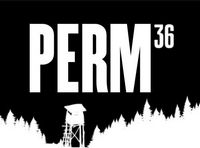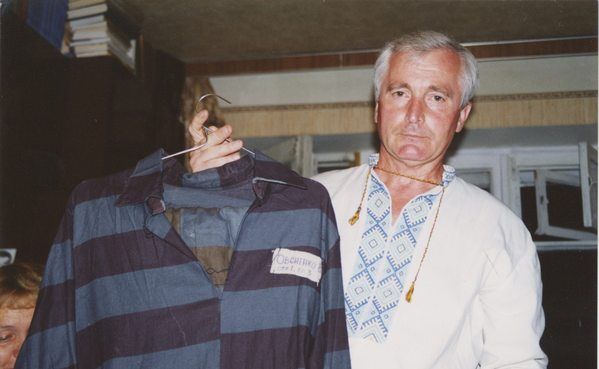Our oldest partner and friend.
He was a Ukrainian language and literature teacher in a rural school. From the age of nineteen, he duplicated and distributed Ukrainian samizdat, and from his early twenties, he was involved in publishing the uncensored human rights bulletin “Украинский вестник” [Ukrainian Herald].
He was arrested on March 5, 1973, and sentenced on December 6, 1973, under Article 62, Part 1, “Anti-Soviet agitation and propaganda” of the Criminal Code of the Ukrainian SSR, along with other publishers of the bulletin: V. Lysovyi and E. Proniuk. He was accused of writing letters to the Central Committee of the CPSU and to “prominent figures of the Soviet Union,” including academics, writers, and state officials, about the intensified political processes in Ukraine in 1971-1972; and of his involvement in the publication of the “Украинский вестник” [Ukrainian Herald]. He was sentenced to four years of imprisonment and served his term in the Mordovian political labor camps.
After his release in March 1977, he was placed under administrative supervision in his native village, where he continued to be involved in national-democratic and human rights activities – collecting and passing on information for the human rights bulletin “Chronicle of Current Events” and the Ukrainian Helsinki Group. In November 1978, he was declared a member of the group.
In December 1978, a new case was provocatively initiated against him – he was detained with guests under the pretext of establishing of their identification, and during the arrest he characterized the rough actions of the police as gangster-like. That is why Captain of the police, Slavinsky, who led the detention, promised to “fabricate a case” against him. On February 8, 1979, he was convicted under Article 188-1, Part 2 – “Resistance to a police officer or people’s volunteer in the performance of their duties to maintain public order, involving violence or the threat of violence, as well as coercion of these persons by violence or the threat of violence to commit obviously illegal actions” of the Criminal Code of the Ukrainian SSR, and was sentenced to three years of imprisonment. From the verdict: “Resistance to the police… he threatened Lieutenant Bazlenko… attacked Captain Slavinsky, grabbed him by the chest, and tore off two buttons from his coat.” He served his sentence in the penal camps of Zaporizhzhia and Zhytomyr regions.
He was arrested in the camp on June 9, 1981, and sentenced on August 26, 1981, under Article 62, Part 2 – “Anti-Soviet agitation and propaganda by a person previously convicted of particularly dangerous state crimes,” to ten years of imprisonment and five years of exile, being recognized as a “particularly dangerous recidivist.” He was charged with the article “Instead of the Last Word,” based on materials of his last statement during the 1979 trial, and a letter about the conditions of prisoners sent by him from the camp to the UN. He served his sentence in the special regime departments of Perm-36 camp and the central hospital of Perm-35 camp. He was released from detention in August 1988.
A year after his release, he returned to the former Perm-36 camp to retrieve the bodies of Ukrainian human rights activists, poet V. Stus, and journalist V. Marchenko, who were buried in the camp’s rural cemetery.
Since 1998, he has been a member of the All-Ukrainian Coordinating Council of the Ukrainian Helsinki Union. In 1990, he was the secretary of the Ukrainian Republican Party, and from 1997 to 2001, he served as the deputy chairman of the Republican Christian Party. He was a member of the board of the International Society “Memorial” and the council of the public Memorial Museum of the History of Political Repressions “Perm-36” (1995-2014). He is the founder and editor of the Virtual Museum “Дисидентский Рух в Українi” [Dissident Movement in Ukraine].
He first visited the “Perm-36” museum during its opening in 1995 and subsequently visited almost every year. In 2009, he was stopped at the Russian border, and later he was expelled from Russia as an “undesirable person” while on his way to the museum for the International Civil Forum “Пилорама” [Pilorama].
A citizen and patriot of free Ukraine.
One of its most honorable sons.
He battled a long and difficult illness.
Eternal memory…
We mourn…


